A legendary encounter that usurped all other underdog victories.
Tennis is not my favourite sport, but my favourite sporting moment involves tennis. It involves a whole match, actually.
I have never been more enthralled, engrossed and unfathomably involved on an emotional level in a sporting occasion as I was when Goran Ivanisevic took on Pat Rafter in the 2001 Wimbledon final.
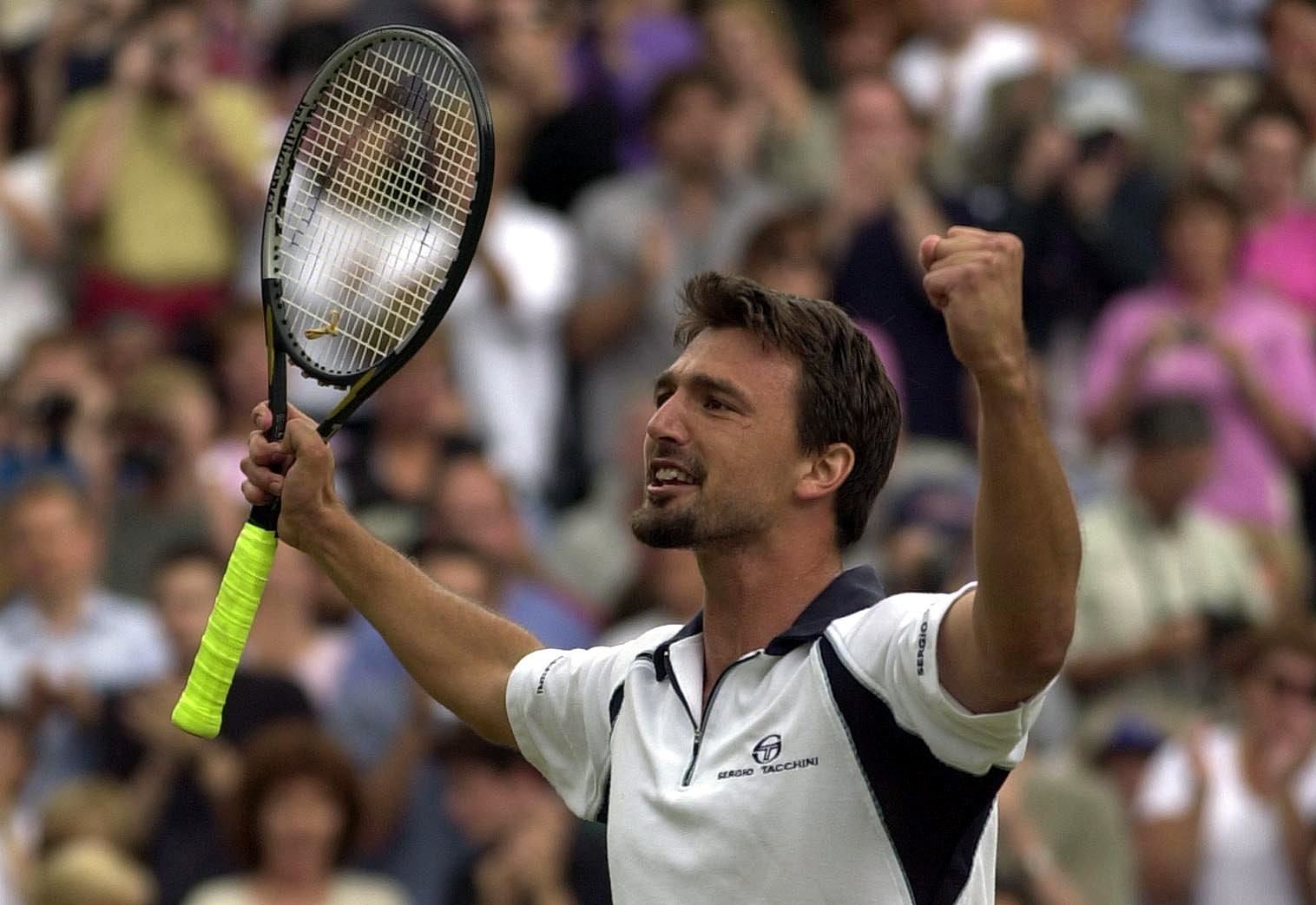
Over a decade on, I can still reel off the scoreline without hesitation as Ivanisevic (or simply Goran, as he was endearingly referred to) beat Rafter 6-3, 3-6, 6-3, 2-6, 9-7.
It was Goran’s first ever Wimbledon title. He was then and still remains the only player to win the Men’s Singles Championship at Wimbledon as a ‘wildcard’. It was his first ever Grand Slam title. It would be his only Grand Slam title, but that’s all that Goran wanted.
A previous three-time finalist at the All-England Club, Goran said on the eve of this fourth attempt at victory, “I wouldn’t mind putting my racket away if God let me win today”.
The Croatian's increasing desperation, but lingering hope, would finally prevail.
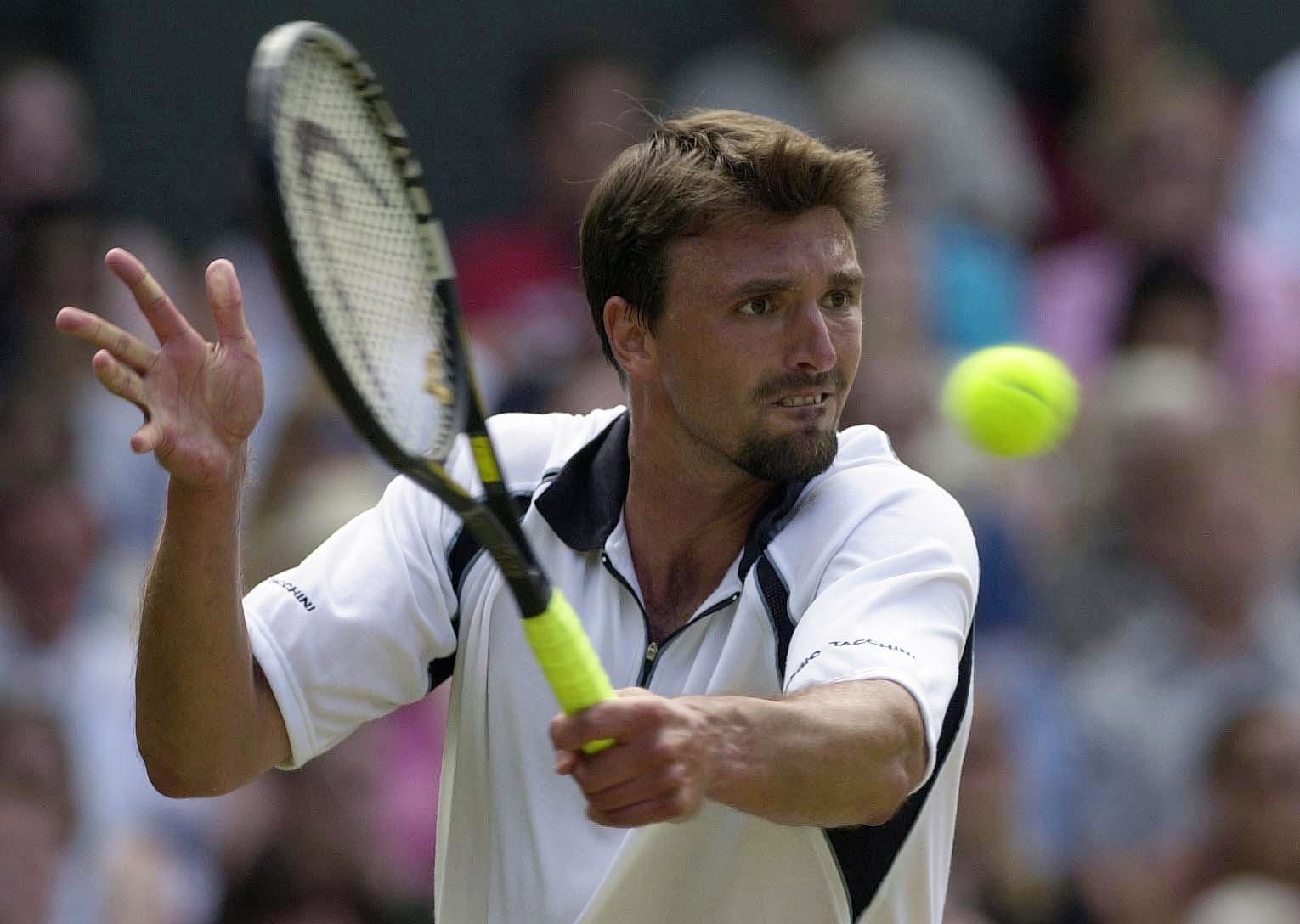
His impromptu prayer was granted in a final that was pretty unique in the modern era; it was played on a Monday – ‘People’s Monday’, as it is known.
The traditional Sunday final was postponed due to the unseasonably wet summer weather, even by London standards. These were the days long before the rooftop shelter that Centre Court fans enjoy today and it was this heavy bout of precipitation that would prove to be the Croatian’s biggest ally in the tournament.
He had a titanic battle with England’s own Tim Henman in the semi-final. Goran initially took control over the fans’ favourite, but Henman fought back with a vengeance and was helped by Goran self-destructing – an unwelcome trait in which the Croat could never fully escape from throughout his career.
He lost the third set 6-0, sending one net volley so long it hit the back-board without taking a bounce. There is absolutely no question that Henman would have won that semi-final had the rain not stopped play for the best part of 24 hours. Henman alludes to this fact today; Goran acknowledges it.
Fate was on hand to guide the mercurial Croatian to his overdue destiny.
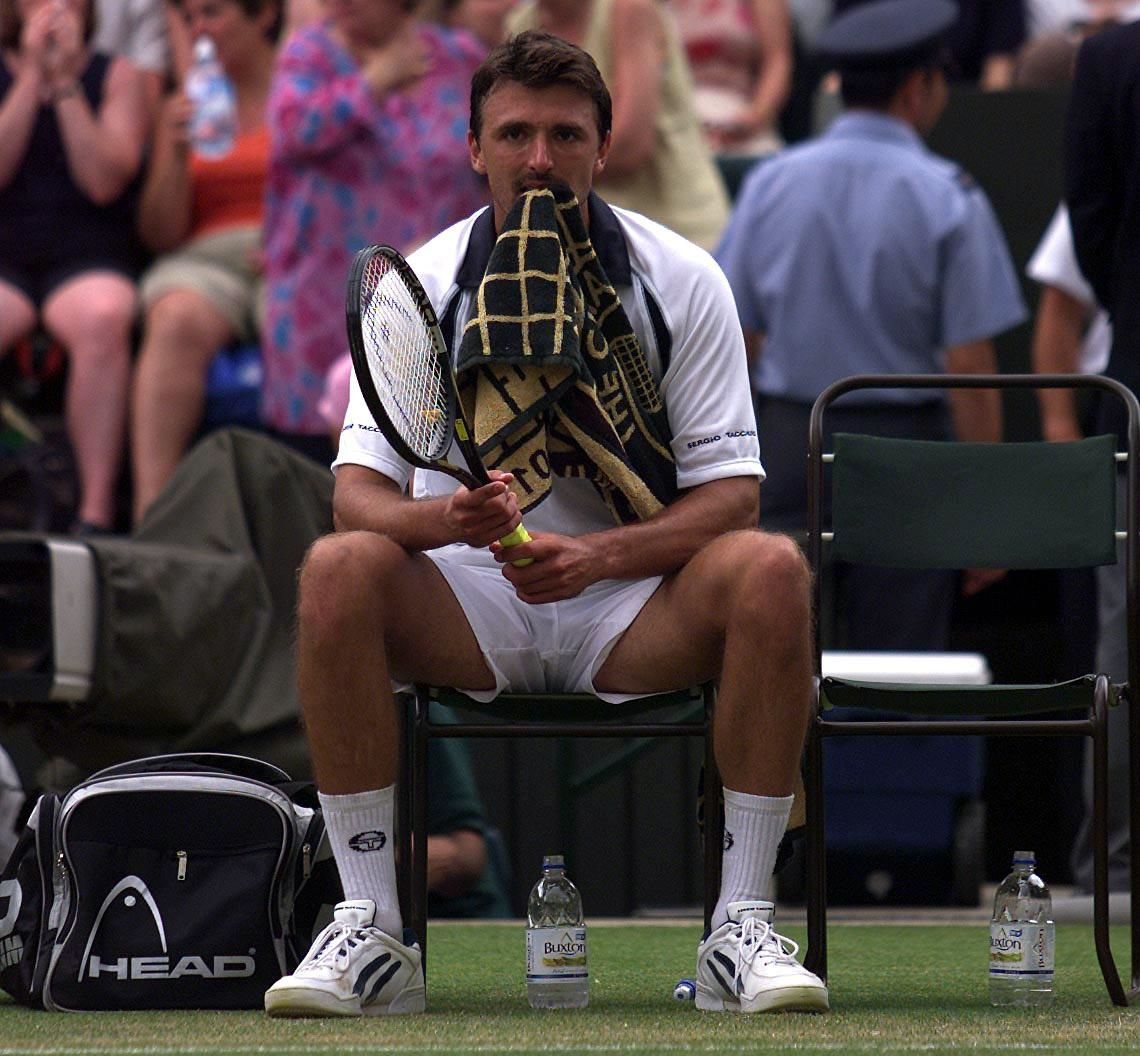
It was a remarkable journey for Goran. At the start of the 2001 season, his world ranking was so low that he had to go through the qualifying tournament just to gain entry to The Australian Open. He lost this qualifying match.
The rest of the year was equally bleak, but then June came a-knocking and brought with it the start of Wimbledon. Goran’s three-figured ranking meant that he had not amassed enough points to qualify for the slam, but courtesy of his previous finals' appearances, he was granted a ‘wildcard’ entry.
Overall, Goran appeared in three Wimbledon finals in the 1990s. Grass was undoubtedly his best surface as its natural low-bounce effect on the tennis ball proved very advantageous to the Croat’s blistering serve. He was simply unlucky that these three matches were against two of the all-time greats.
In 1992, he was defeated by Andre Agassi, and followed this with two losses to Pete Sampras in 1994 and in 1998. He had previous form at Wimbledon, no question, but something significant was keeping him from ultimate glory.
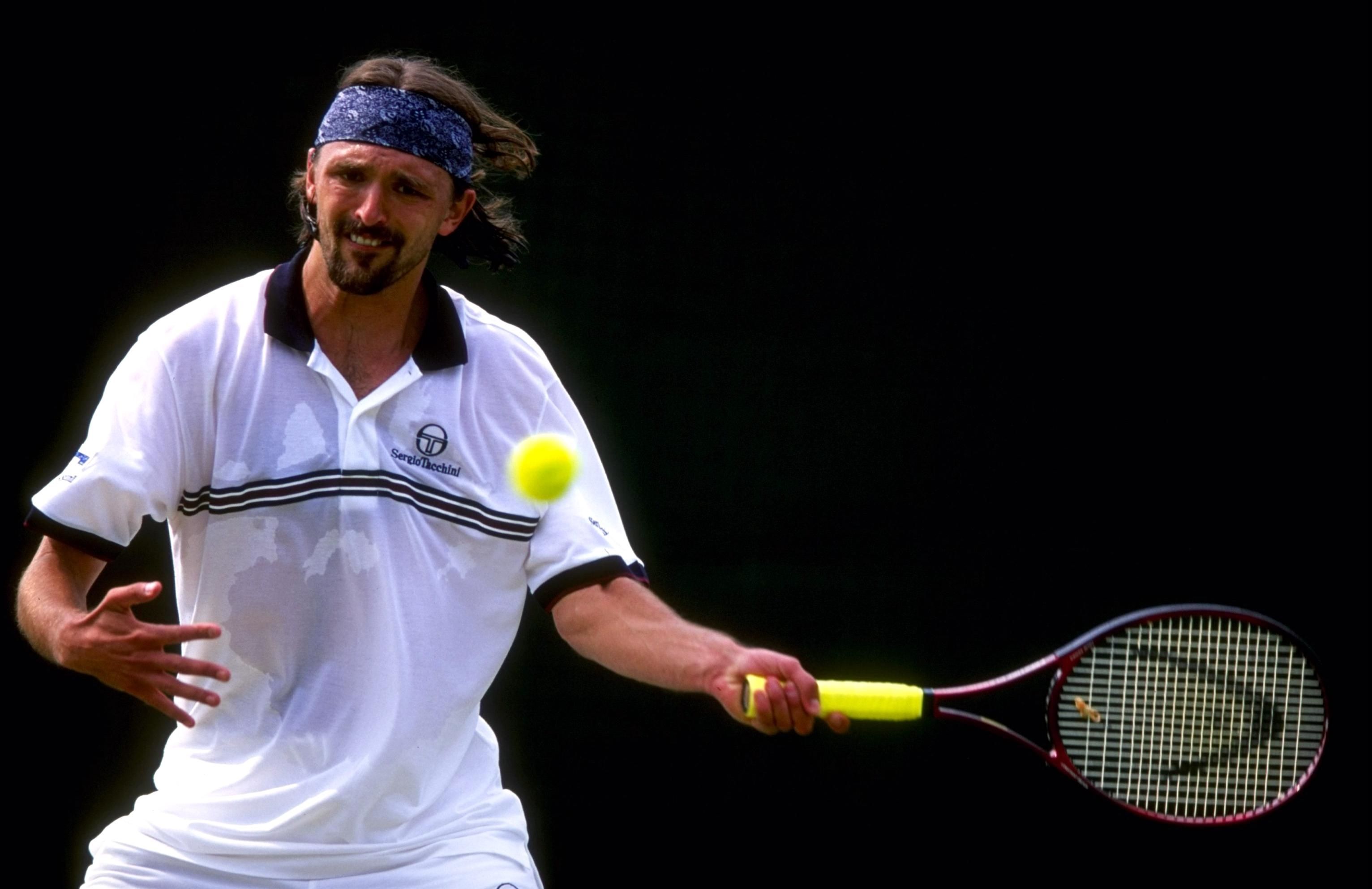
He was a cup specialist. Like a football team struggling in the league, he saved his best form for the major tournaments.
In the three finals in the '90s, Goran had status in the game (the Sampras loss in '94 coincided with his career-high ranking of world number two). He was seen as dangerous. He was the underdog in each of these finals, granted, but he wouldn’t have shocked many if he had won.
Skip forward to 2001; no one expected anything from the 125th ranked player in the world portrayed in tennis circles as a rapidly fading force.
I dare say that many didn’t even realise he was playing. But, by around the third round stage, people started to take notice.
He did a TV interview for the BBC where he demonstrated the many personalities of Goran in a split-screen format. This was the first encounter that I had with the Eastern European. Up until this point I had no knowledge of his career, but I was instantly intrigued.
First of all, he didn’t look like your typical tennis player, rather like a hard-line soldier. Also, he was genuinely funny because he was so self-deprecating. And he could play, he could really play.
Despite being outside the top 100 at the start of the tournament, Goran defeated Carlos Moyá, Andy Roddick and Marat Safin – all future world number ones – before dispatching Henman in the semi-final.
https://youtu.be/JFowjv97Snw
Clip via Kuldhir Bhati
For Goran to achieve his ultimate dream he would have to overcome another icon of the game, Australia’s very own Pat Rafter. The Aussie’s career was considerably more accomplished.
The Queensland native won consecutive US Open Championships in 1997, against Greg Rusedski, and in 1998, beating compatriot Mark Philippoussis in four sets, all before being crowned world number one the following year.
He too had experience in a Wimbledon final, losing out in 2000 to Pete Sampras after beating Andre Agassi in the semi-final of what was a five-set thriller.
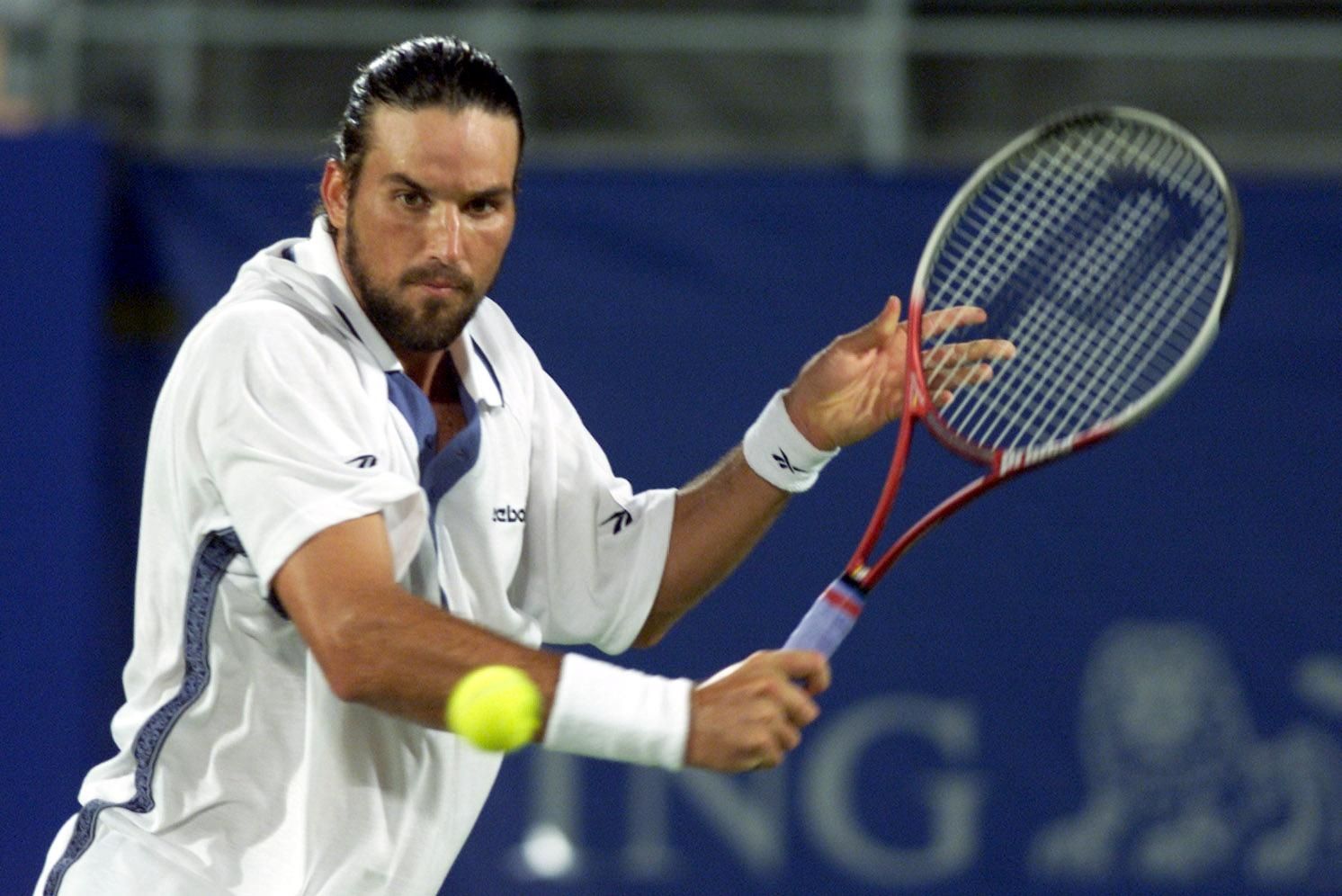
Rafter (pictured) was certainly the more accomplished out of the pair, and arguably more talented.
Rafter’s 2001 season in the lead up to Wimbledon had also been impressive. Where Goran failed to qualify for The Australian Open, Rafter went as far as the semi-finals before losing to his old sparring partner Agassi in another classic. Rafter was, one could argue with justification, at the peak of his powers.
The final on July 9 on Centre Court was incredible, the tension palpable. Thankfully, the rain meant a Monday final, therefore the corporate seating reserved for the usual Sunday showdown was no longer in practice. As a result, the whole stadium was open to the public for purchase.
It truly was the People’s Final. You had Croatia’s Ivanisevic against Australia’s Rafter. There is such a huge bind between both nations and it came through in the atmosphere. It was simply spectacular.
Football shirts donned the whole perimeter of Centre Court. It was just a sea of red and yellow, mixing into one another.
https://youtu.be/A_U6kVFe_JE
Clip via stellastey
It was also loud. So loud, that it was worthy of a football cup final. Both men revelled in this sea of noise and the games came thick and fast.
The match was going the distance, but it was flying by thanks to the rapid nature of each individual’s style of play. These were passionate men playing the match for their people.
There was a wonderful competitiveness to it. Both players, both sets of fans, wanted to win so much, but the mutual respect was evident. There was a jovial atmosphere around the stadium, but it retained the tension that befits the biggest stage in the tennis calendar.
One could compare it to a particularly raucous Davis Cup tie, but I think it transcended that. It had to be seen to be believed.
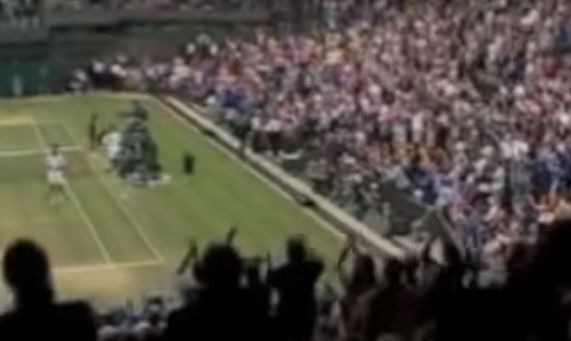
The players were exchanging sets. Goran then lost it in the fourth, kicking the net in fury after being penalised for a foot fault. Many could see the demons closing in on the Croat, but he composed himself. His self-destructive episode in the semi-final before the rain delay was, crucially, not quite repeated on this occasion and, before long, he was back into his groove.
The final set, fittingly, went the distance and then some. Goran earned a crucial break in the 15th game of the set and served for the championship. This was the first time he had ever done so. The nerves were evident and deuces and advantages were repeated over and over.
His first match point arrived. He prayed to the heavens and, as Pat Cash mentioned in commentary, tears were in his eyes.
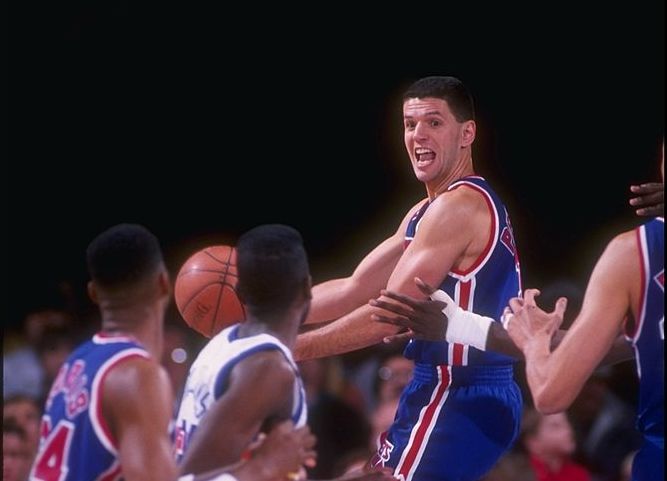
Dražen Petrović (pictured) was a great friend and huge influence on Ivanisevic. The NBA star tragically died in a car crash at the age of 28.
However, Rafter wasn’t done. The Aussie won the point after his opponent double-faulted. Goran won the next though and immediately set up a second match point. Again, unbelievably, he double-faulted. This was now officially torture to watch, with the pain most evident on the face of Mr. Ivanisevic Snr, who was sitting in the player’s box.
The Aussie was refusing to lose, while Ivanisevic’s power serve was suddenly inhibited by the prize at stake.
Despite Goran taking the next play on deuce to set up another championship point, it would prove not to be third time lucky for a man who was edging toward his own personal breaking point. Rafter demonstrated his class and incredible poise by calmly lobbing the ball over Goran’s bewildered head for the winner.
The panache of the shot had no business in such an incredibly intense environment, yet perfectly encapsulated the bravery of a man who had lost the same final 12 months prior and was about to do so again.
Finally, on the fourth attempt, fate arrived. On this occasion, Goran took longer between points to settle his nerves, asking the ball boy for the same balls he had just used.
Meanwhile, his father, sitting among his son’s entourage, looked like he couldn’t take much more. I couldn’t take much more and I was watching from home.
https://youtu.be/ZTOgUaT190o
Clip via Kuldhir Bhati
This time, Goran sent a serve down the line and Rafter could only hit the net in reply. He fell to the ground, crying. The two men shared a glorious man-hug that brought the stadium to tears. Goran ran up to the box and celebrated in the same style as Pat Cash himself when he won Wimbledon in 1987.
In Rafter’s runners-up speech, he was asked to congratulate Goran. He responded in such a wonderfully humorous manner befitting of that crazy day, “No, I don’t think I want to!”. The stadium erupted in laugher and applause.
Goran’s victory words were similarly light-hearted, before he dedicated the win to his great friend and former NBA superstar, Dražen Petrović, who tragically died in 1993 at the age of 28 in a car crash.
https://youtu.be/EotEO905J1g
Clip via sakamotoryuiti
The class of both speeches was befitting of the men who spoke the words. It was such a fine day. My favourite sporting moment.



 Over a decade on, I can still reel off the scoreline without hesitation as Ivanisevic (or simply Goran, as he was endearingly referred to) beat Rafter 6-3, 3-6, 6-3, 2-6, 9-7.
It was Goran’s first ever Wimbledon title. He was then and still remains the only player to win the Men’s Singles Championship at Wimbledon as a ‘wildcard’. It was his first ever Grand Slam title. It would be his only Grand Slam title, but that’s all that Goran wanted.
A previous three-time finalist at the All-England Club, Goran said on the eve of this fourth attempt at victory, “I wouldn’t mind putting my racket away if God let me win today”.
The Croatian's increasing desperation, but lingering hope, would finally prevail.
Over a decade on, I can still reel off the scoreline without hesitation as Ivanisevic (or simply Goran, as he was endearingly referred to) beat Rafter 6-3, 3-6, 6-3, 2-6, 9-7.
It was Goran’s first ever Wimbledon title. He was then and still remains the only player to win the Men’s Singles Championship at Wimbledon as a ‘wildcard’. It was his first ever Grand Slam title. It would be his only Grand Slam title, but that’s all that Goran wanted.
A previous three-time finalist at the All-England Club, Goran said on the eve of this fourth attempt at victory, “I wouldn’t mind putting my racket away if God let me win today”.
The Croatian's increasing desperation, but lingering hope, would finally prevail.
 His impromptu prayer was granted in a final that was pretty unique in the modern era; it was played on a Monday – ‘People’s Monday’, as it is known.
The traditional Sunday final was postponed due to the unseasonably wet summer weather, even by London standards. These were the days long before the rooftop shelter that Centre Court fans enjoy today and it was this heavy bout of precipitation that would prove to be the Croatian’s biggest ally in the tournament.
He had a titanic battle with England’s own Tim Henman in the semi-final. Goran initially took control over the fans’ favourite, but Henman fought back with a vengeance and was helped by Goran self-destructing – an unwelcome trait in which the Croat could never fully escape from throughout his career.
He lost the third set 6-0, sending one net volley so long it hit the back-board without taking a bounce. There is absolutely no question that Henman would have won that semi-final had the rain not stopped play for the best part of 24 hours. Henman alludes to this fact today; Goran acknowledges it.
Fate was on hand to guide the mercurial Croatian to his overdue destiny.
His impromptu prayer was granted in a final that was pretty unique in the modern era; it was played on a Monday – ‘People’s Monday’, as it is known.
The traditional Sunday final was postponed due to the unseasonably wet summer weather, even by London standards. These were the days long before the rooftop shelter that Centre Court fans enjoy today and it was this heavy bout of precipitation that would prove to be the Croatian’s biggest ally in the tournament.
He had a titanic battle with England’s own Tim Henman in the semi-final. Goran initially took control over the fans’ favourite, but Henman fought back with a vengeance and was helped by Goran self-destructing – an unwelcome trait in which the Croat could never fully escape from throughout his career.
He lost the third set 6-0, sending one net volley so long it hit the back-board without taking a bounce. There is absolutely no question that Henman would have won that semi-final had the rain not stopped play for the best part of 24 hours. Henman alludes to this fact today; Goran acknowledges it.
Fate was on hand to guide the mercurial Croatian to his overdue destiny.
 It was a remarkable journey for Goran. At the start of the 2001 season, his world ranking was so low that he had to go through the qualifying tournament just to gain entry to The Australian Open. He lost this qualifying match.
The rest of the year was equally bleak, but then June came a-knocking and brought with it the start of Wimbledon. Goran’s three-figured ranking meant that he had not amassed enough points to qualify for the slam, but courtesy of his previous finals' appearances, he was granted a ‘wildcard’ entry.
Overall, Goran appeared in three Wimbledon finals in the 1990s. Grass was undoubtedly his best surface as its natural low-bounce effect on the tennis ball proved very advantageous to the Croat’s blistering serve. He was simply unlucky that these three matches were against two of the all-time greats.
In 1992, he was defeated by Andre Agassi, and followed this with two losses to Pete Sampras in 1994 and in 1998. He had previous form at Wimbledon, no question, but something significant was keeping him from ultimate glory.
It was a remarkable journey for Goran. At the start of the 2001 season, his world ranking was so low that he had to go through the qualifying tournament just to gain entry to The Australian Open. He lost this qualifying match.
The rest of the year was equally bleak, but then June came a-knocking and brought with it the start of Wimbledon. Goran’s three-figured ranking meant that he had not amassed enough points to qualify for the slam, but courtesy of his previous finals' appearances, he was granted a ‘wildcard’ entry.
Overall, Goran appeared in three Wimbledon finals in the 1990s. Grass was undoubtedly his best surface as its natural low-bounce effect on the tennis ball proved very advantageous to the Croat’s blistering serve. He was simply unlucky that these three matches were against two of the all-time greats.
In 1992, he was defeated by Andre Agassi, and followed this with two losses to Pete Sampras in 1994 and in 1998. He had previous form at Wimbledon, no question, but something significant was keeping him from ultimate glory.
 He was a cup specialist. Like a football team struggling in the league, he saved his best form for the major tournaments.
In the three finals in the '90s, Goran had status in the game (the Sampras loss in '94 coincided with his career-high ranking of world number two). He was seen as dangerous. He was the underdog in each of these finals, granted, but he wouldn’t have shocked many if he had won.
Skip forward to 2001; no one expected anything from the 125th ranked player in the world portrayed in tennis circles as a rapidly fading force.
I dare say that many didn’t even realise he was playing. But, by around the third round stage, people started to take notice.
He did a TV interview for the BBC where he demonstrated the many personalities of Goran in a split-screen format. This was the first encounter that I had with the Eastern European. Up until this point I had no knowledge of his career, but I was instantly intrigued.
First of all, he didn’t look like your typical tennis player, rather like a hard-line soldier. Also, he was genuinely funny because he was so self-deprecating. And he could play, he could really play.
Despite being outside the top 100 at the start of the tournament, Goran defeated Carlos Moyá, Andy Roddick and Marat Safin – all future world number ones – before dispatching Henman in the semi-final.
https://youtu.be/JFowjv97Snw
Clip via Kuldhir Bhati
For Goran to achieve his ultimate dream he would have to overcome another icon of the game, Australia’s very own Pat Rafter. The Aussie’s career was considerably more accomplished.
The Queensland native won consecutive US Open Championships in 1997, against Greg Rusedski, and in 1998, beating compatriot Mark Philippoussis in four sets, all before being crowned world number one the following year.
He too had experience in a Wimbledon final, losing out in 2000 to Pete Sampras after beating Andre Agassi in the semi-final of what was a five-set thriller.
He was a cup specialist. Like a football team struggling in the league, he saved his best form for the major tournaments.
In the three finals in the '90s, Goran had status in the game (the Sampras loss in '94 coincided with his career-high ranking of world number two). He was seen as dangerous. He was the underdog in each of these finals, granted, but he wouldn’t have shocked many if he had won.
Skip forward to 2001; no one expected anything from the 125th ranked player in the world portrayed in tennis circles as a rapidly fading force.
I dare say that many didn’t even realise he was playing. But, by around the third round stage, people started to take notice.
He did a TV interview for the BBC where he demonstrated the many personalities of Goran in a split-screen format. This was the first encounter that I had with the Eastern European. Up until this point I had no knowledge of his career, but I was instantly intrigued.
First of all, he didn’t look like your typical tennis player, rather like a hard-line soldier. Also, he was genuinely funny because he was so self-deprecating. And he could play, he could really play.
Despite being outside the top 100 at the start of the tournament, Goran defeated Carlos Moyá, Andy Roddick and Marat Safin – all future world number ones – before dispatching Henman in the semi-final.
https://youtu.be/JFowjv97Snw
Clip via Kuldhir Bhati
For Goran to achieve his ultimate dream he would have to overcome another icon of the game, Australia’s very own Pat Rafter. The Aussie’s career was considerably more accomplished.
The Queensland native won consecutive US Open Championships in 1997, against Greg Rusedski, and in 1998, beating compatriot Mark Philippoussis in four sets, all before being crowned world number one the following year.
He too had experience in a Wimbledon final, losing out in 2000 to Pete Sampras after beating Andre Agassi in the semi-final of what was a five-set thriller.



